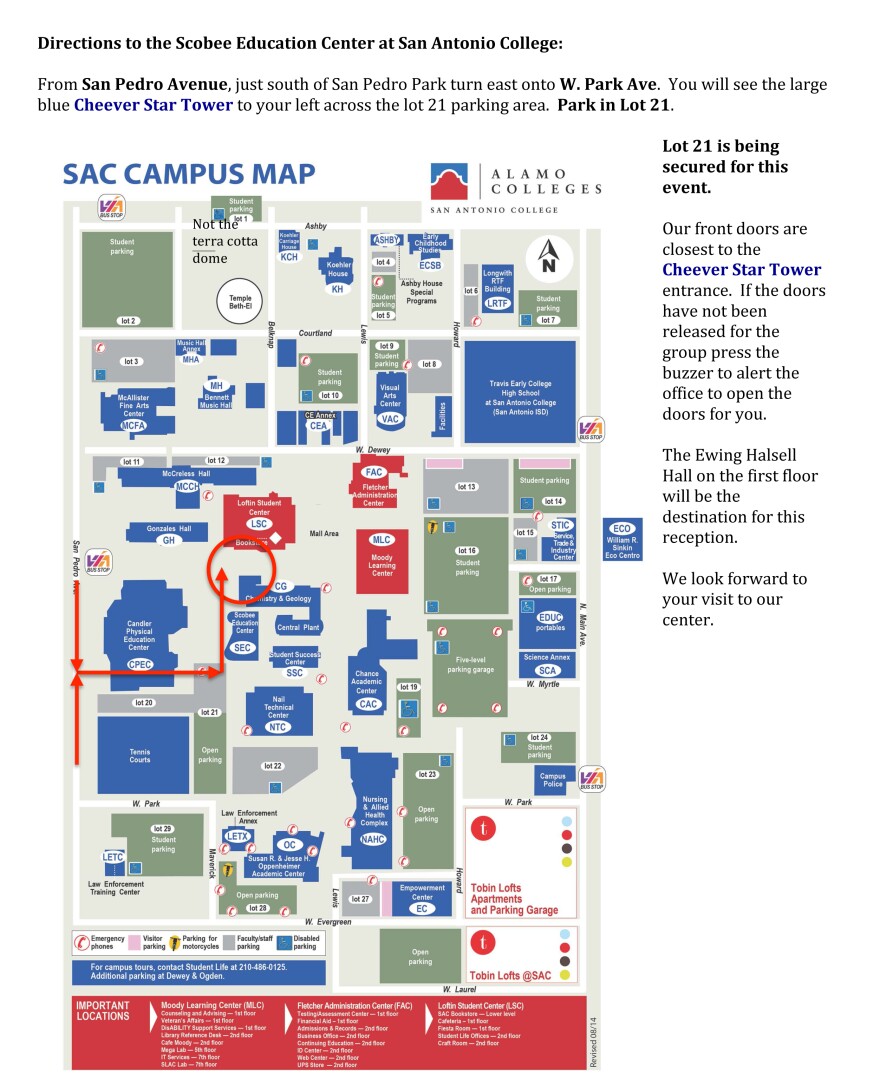After 50 years of serving the Alamo City, San Antonio College’s planetarium was renovated and reopened in 2014 as the Scobee Education Center, named after Dick Scobee who died in NASA’s Challenger accident. If you’re among the many San Antonians who haven’t yet visited the center, join us on Tuesday, February 16 for our next Think Science program, “Think Rocket Science.” See one of the latest shows at the Scobee Planetarium and learn about current and future unmanned NASA space missions from a scientist at Southwest Research Center.
This event is free and open to the public. There will be two planetarium shows; one at 6:30, followed by a presentation from Dr. Stephen Fuselier at 7:00, and a second planetarium show at 7:45 p.m. for those who can’t make the early show.
Scobee Planetarium Presentation:
“EXTREME PLANETS” – Ever since the first humans looked towards the stars, we have wondered whether we are alone in the Universe. Today, we are one step closer to knowing the answer. With the discovery of the first planet orbiting another star in 1995, we now know that planets are not unique to our own Solar System. Thousands of planets have been discovered orbiting stars beyond the Sun. In fact, these "extra-solar" planets appear to be quite common. While no one has yet found an Earth-like world with conditions similar to ours, it now seems only a matter of time before this discovery takes place. Embark upon a celestial quest in search for worlds orbiting other stars as we explore, “Extreme Planets!”
About the speaker:

Dr. STEPHEN A. FUSELIER, is the Executive Director of the Space Science Directorate, Space Science and Engineering Division, Southwest Research Institute. Dr. Fuselier received his PhD in Physics from the University of Iowa in 1984 and has more than 30 years of experience as a scientist, project manager, and senior manager for scientists, engineers, and technicians. He is a Co-Investigator and sensor lead on the Interstellar Boundary Explorer (IBEX) mission, Co-Investigator and lead for the Hot Plasma Composition Experiment (HPCA) on the Magnetospheric Multiscale mission, and Co-Investigator on the Rosetta Orbiter Spectrometer for Ion and Neutral Analysis (ROSINA) and the Imager for Magnetopause to Aurora Global Exploration (IMAGE). His scientific interests include analysis of space plasma, mass spectrometer, and energetic neutral atom data from various spacecraft including ISEE, ICE, AMPTE/CCE, POLAR, CLUSTER and IMAGE, IBEX, and ROSETTA, MMS, CRRES chemical releases, and AEPI artificial aurora experiment. He is author or co-author on over 310 scientific papers in the scientific literature. He is a fellow of the American Geophysical Union and the 1995 recipient of the AGU’s James B. Macelwaine award for “significant contributions to the geophysical sciences by a young scientist of outstanding ability” and the 2016 recipient of the European Geosciences Union’s Hannes Alfvén medal for “outstanding science contributions toward the understanding of plasma processes in the solar system and other cosmical plasma environments.”
Think Science: Rocket Science And New Space Exploration
Tuesday, February 16, 2016
6:30 p.m. - 8:30 p.m.
Scobee Education Center, San Antonio College
Parking: From San Pedro Avenue, just south of San Pedro Park, turn east onto W. Park Ave. You will see the large blue Cheever Star Tower to your left across the lot 21 parking area. Park in Lot 21.

Think Science is made possible by The University of Texas at San Antonio.







